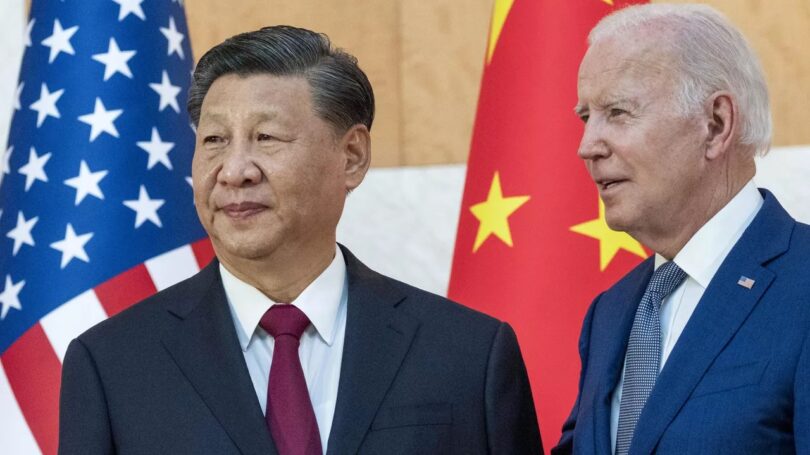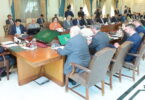WASHINGTON (Sputnik): Amid a new spike in tensions with China, US President Joe Biden has pledged to “get to the bottom” of the issue and cool the tensions by speaking directly to Chinese President Xi Jinping. However, his comments come as a top Pentagon official travels to Taiwan, which Beijing considers a violation of its sovereignty.
Speaking to reporters at the White House, Biden pledged to “responsibly manage” US competition with China “so that it doesn’t veer into conflict,” as he and Xi agreed upon at their November meeting in Bali – another meeting aimed at cooling tensions.
“I expect to be speaking with President Xi, and I hope we have a – we are going to get to the bottom of this,” Biden said on Thursday. “But I make no apologies for taking down that balloon.”
However, the White House has not said when such a meeting would take place, or if it would be in-person or by phone.
Two weeks prior, the US Air Force shot down a Chinese high-altitude balloon over the Atlantic Ocean after it had transited Canada and the US, claiming it was a surveillance device and part of a larger spying operation. Beijing has said the balloon was for civilian research and had drifted eastward out of their control.
In the weeks since, the US has downed several other small unidentified floating objects, but Biden said Thursday that they are not believed to be either Chinese in origin or for surveillance purposes.
His deescalation comments come as US Vice President Kamala Harris departs for Europe and the Munich Security Conference, an annual summit on international security policy attended by dozens of nations. China is participating for the first time in several years, with Wang Yi, the Communist Party’s chief diplomatic expert and a former foreign minister, representing the socialist state.
Wang is rumored to be meeting with US Secretary of State Antony Blinken at the conference, although neither party has confirmed the encounter would take place. They were due to meet in Beijing earlier this month, but Blinken postponed it after the balloon was detected.
Before Harris departed, she told a US media outlet “I don’t think so, no,” when asked if the balloon fiasco should impact US-China relations.
Harris kept to the same script as Biden, saying, “We seek competition, but not conflict or confrontation.”
Since 2018, the US has considered “great power competition” with Russia and China to be its primary strategic focus. In key strategy documents, Washington has accused the two nations of seeking to upend what it calls “the rules-based international order,” or the US-dominated diplomatic, financial, and military system that most of the world has lived under since the end of the Second World War.
When it comes to China, a key part of that strategy is buttressing US support for the government in Taiwan, a Chinese breakaway province where the previous republican government, overthrown on the mainland in 1949, has managed to maintain control. The US switched its recognition of the Chinese government from Taipei to Beijing in 1979, but against its agreements underpinning the arrangement, has continued to openly but unofficially support Taipei with weapons and diplomatic support.
On Friday, US Deputy Assistant Secretary of Defense for China Michael Chase reportedly arrived in Taipei. No official confirmation of the trip has been made, with Pentagon spokesperson Lt. Col. Martin Meiners only telling reporters: “Our commitment to Taiwan is rock-solid and contributes to the maintenance of peace and stability across the Taiwan Strait and within the region.”







